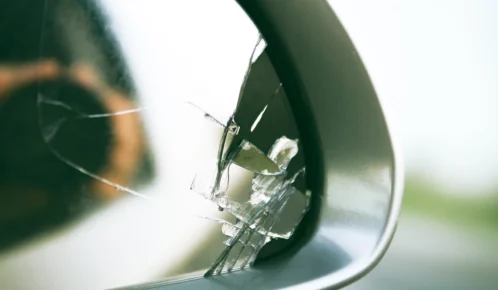Understanding workers’ compensation investigations and what they look for can help ensure injured workers receive benefits. Employers and insurance carriers search for evidence to deny or to reduce the value of claims. Workers’ compensation insurance provides several benefits for injured victims, such as wage replacement, vocational rehabilitation, and medical treatment. Insurance carriers and employers are focused on their bottom line. Accordingly, insurers and employers investigate claims to reduce their financial exposure and to gather evidence for possible defenses.
Table of Contents
What Is A Workers’ Compensation Claim?
Under Illinois law, victims have a viable workers’ compensation if they suffered a work-related injury. Lawyers for work related injuries can offer advice on whether an injury is compensable under the workers’ compensation act. For example, an employee that develops depression because he or she is unsatisfied with his or her job may not have a compensable claim. Instead, the employee must be able to identify a specific traumatic incident which caused the depression. The traumatic incident does not have to be a physical injury suffered by the employee.
What Defenses Are Available In A Workers’ Compensation Claim?
Workers’ compensation insurance is a form of no-fault insurance. An injured worker does not need to prove a specific person caused the accident. An injured worker still has a compensable claim even if his or her own negligence caused the injury. Although workers’ compensation is no-fault insurance, employers and insurance companies often attempt to use various defenses when claims are filed. These include:
- The employee did not suffer an injury
- The injury is not work-related
- The injury is a pre-existing condition
- The injury did not occur while the employee was at work
- The injured employee was impaired by drugs or alcohol
- The employee suffered an injury after engaging in misconduct
Employers and insurance companies need evidence to support these defenses. They utilize several tools to investigate claims and gather evidence.
What Do They Look for in Workers’ Compensation Claims?
Employers and insurance companies hire investigators. These investigators often conduct covert surveillance on injured workers. Investigators try to obtain video or photo evidence of the employee engaged in physical activities such as exercise, or household chores. Investigators may also conduct an electronic search of any social media accounts held by the injured worker. Investigators may also speak with an injured worker’s friends, family, and neighbors. In short, investigators search for evidence that the employee was not injured, or that the injury was not severe.
A common defense used by employers and insurance companies is to argue an employee’s injury is not work-related, or resulted from a pre-existing condition. Insurance companies and employers review an injured employee’s medical history by obtaining copies of his or her prior medical records. A review of the medical records is performed by doctors searching for information to support an argument that the injury is not work-related, or is a pre-existing condition. Employers and insurance companies also have the right to request that injured employees submit to independent medical examinations by doctors of their choosing. These examinations often produce results favorable to employers and insurance companies.
How Do Employers And Insurance Companies Investigate Accidents?
Insurance companies and employers review various factors surrounding a workplace accident. Investigators interview any available witnesses, and speak with an employee’s co-workers if they witnessed the accident. If the work place is equipped with surveillance equipment, investigators review any available video footage of the accident. Investigators also review records such as time sheets to determine if an accident happened while the employee was working as opposed to off duty, or during a break.
What if Employee Misconduct Is Suspected?
While workers compensation is no-fault insurance, there are certain circumstances where a claim can be denied due to an employee being at fault. If an employee suffered an injury while under the influence of drugs or alcohol, his or her claim may be precluded. As such, employers and insurance companies often subject injured workers to drug tests following accidents. A positive result creates a presumption that the worker’s injury resulted from intoxication. An employee must rebut this presumption to have the claim accepted. Additionally, insurance investigators carefully review facts surrounding the accident, along with the employer’s workplace policies, to determine if an employee was engaged in misconduct. If an employee was engaged in misconduct such as horseplay, or was committing an illegal act, the claim is generally not compensable.
Do Insurance Carriers Investigate Other Aspects of a Workers’ Compensation Claim?
Insurance carriers also review each file to ensure a claim complies with the procedural requirements of the Illinois Workers’ Compensation Act. Files are reviewed to see if injured workers reported their injuries to their supervisors within 45 days of the accident. Illinois law requires an injured worker to report his or her injury to a person in a supervisory capacity. The report can either be oral or in writing. Failure to properly report an injury within this 45-day period provides insurance carriers and employers grounds to dispute or deny claims. Assuming a report is made within 45 days, an injured employee must make a workers’ compensation claim within three years or his or her claim may be barred.
How Does Evidence From an Investigation Affect a Workers’ Compensation Claim?
If an employer or insurance company obtains evidence of an employee’s intoxication or misconduct, this gives them evidence to mount defense, and to fight a claim. Evidence that an injury is not work-related or that it is from a pre-existing condition makes it harder for a claim to be accepted. If an employer or insurance company obtains video or photo evidence demonstrating an employee’s injury is not severe, this also reduces the value of a claim. For example, if an employee makes a successful claim for depression, evidence which directly rebuts his or her symptoms can negatively affect his or her workers’ compensation depression settlement. A workers’ compensation attorney can help claimants protect their benefits by understanding what not to do while on workers’ comp.



